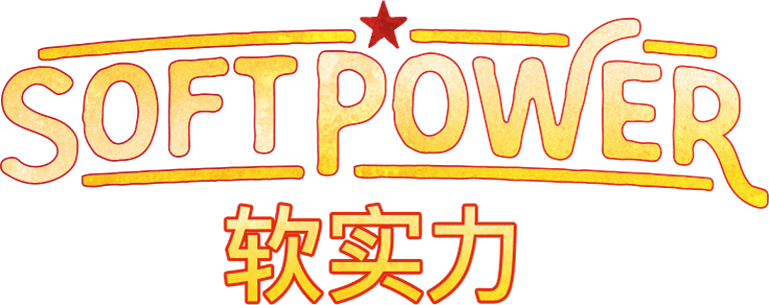From Revivals to Reconstruction
How the Classic ‘East-Meets-West’ Musical Is Getting a New Sound

If we traveled back 70 years in American theatre, a booming parade of sweeping love ballads and uplifting melodic celebrations would welcome us. It’s not dissimilar to the music onstage at the Ahmanson Theatre May 3 – June 10, 2018 for Soft Power, the new show from David Henry Hwang and Jeanine Tesori.
The Golden Age of musical theatre in the 1940–50s, which inspired the music of Soft Power, ushered in timeless romances like the Pulitzer Prize-winning Oklahoma! (1943) and Tony Award®-winning Carousel (1945). These two productions, in particular, instantly dazzled audiences and critics alike, setting the “golden” standard for musicals. And leading this theatrical soundscape—a musical form that would dominate for decades—was the legendary duo of composer Richard Rodgers and lyricist Oscar Hammerstein II.
After the spectacular successes of Oklahoma! and Carousel, Rodgers and Hammerstein became interested in weaving their knack for writing swooning love stories with their concerns about larger post-World War II societal issues like racism and xenophobia. The pair began searching for “exotic” settings and characters, and turned their attention to the East—a cluster of cultures absolutely foreign to the two Americans. Rodgers and Hammerstein sought to send a message of cultural tolerance with stories like South Pacific (1949), The King and I (1951), and Flower Drum Song (1958); all three were immediate hits.
And the so-called “East-meets-West” musical was born. And then revived. And revived again.
Flower Drum Song and South Pacific made their Broadway returns in 2002 and 2008, respectively, while The King and I has been remounted on Broadway a total of four times since its debut. Hammerstein’s pupil Stephen Sondheim wrote about the westernization of Japan in Pacific Overtures (1976), which came back to Broadway in 2004. French composer Claude-Michel Schönberg and lyricist Alain Boublil’s Miss Saigon (1991)—which follows the tragedy of a South Vietnamese woman and her American lover—spent a decade on Broadway, returned in 2017, and has toured around the world, from Japan to the UK.
Although these musicals continue to delight with tunes like “Bali Ha’I” and “Getting to Know You,” their portrayal of Eastern culture do not necessarily stand the test of time. Many 21st-century audiences and playwrights have questioned the authenticity of these productions, and the way they see Asia through the lens of white Americans.
In Rodgers’s autobiography, Musical Stages, he wrote that he followed his usual, award-winning style of music for The King and I without slavishly trying to imitate the music of the locale [Siam/Thailand] in which the story was set,
adding that western audiences are not attuned to the sounds of tinkling bells, high nasal strings, percussive gongs, and would not find this kind of music attractive.
While the music of these shows hardly reflected the countries which they were based, the storylines often drew from stereotypical tropes that have historically subverted those cultures. In The King and I, a white tutor arrives to Siam to teach an “uncivilized” king how to modernize his own country, while Vietnamese people remain “victims of war” in Miss Saigon. Although Rodgers and Hammerstein intended to convey the poignancy of human connections in their works, the result nevertheless contribute to the Orientalist tradition—which critic Edward W. Said defined in his 1978 book Orientalism as a Western style for dominating, restructuring, and having authority over the Orient.
In an attempt to achieve authenticity, modern-day writers and directors have often re-worked the source materials for their revivals. For his 2015 Broadway revival of The King and I, director Bartlett Sher stripped away the exoticism that was common in the 1950s
from the narrative design and instead focused on themes of education in a developing country. Filipino-American actor Jon Jon Briones—who was in the chorus of the 1989 West End production of Miss Saigon—played The Engineer during last year’s Broadway revival; this role had been originated by Jonathan Pryce (a white actor) amidst backlash and protests.
And Soft Power playwright David Henry Hwang rewrote the book of Flower Drum Song for that show’s 2002 production. In an article for The New York Times, Hwang wrote that while he watched the 1996 Broadway revival of The King and I, he found himself struck by that production's desire to recreate authentically the Siamese setting of Anna and the King, and began remembering Flower Drum Song,
prompting him to create a more “authentic” production of it. However, after extensive research and contemplation of Asian cultures, stereotypes, and the journey of his own Chinese-born parents, Hwang became less interested in seeking some holy grail of authenticity and more convinced of the need to create characters who burst from the page or stage with the richness, complexity, and contradictions of real people.
He concluded that if [characters] are well written, they will exude humanity, which is ultimately the most effective weapon against stereotypes, and the most visceral measure of authenticity.
In Soft Power, Hwang collaborated with Tony Award®-winning composer Jeanine Tesori (Fun Home) to craft a more nuanced “East-meets-West” tale told through a Chinese lens. While it still features a sweeping love story with big musical numbers, it also addresses cultural confusions from Broadway’s Golden Age. In short, Soft Power is both a love letter to the classics and a reconstruction of their problematic parts.
This is my version of what romantic musicals would sound like,
Tesori said. As an outsider to Chinese culture, she incorporated her experiences with world music into the soundscape of Soft Power: I studied so much world music at a really young age, and I traveled all over the world and recorded thousands of hours of world music,
she said. I think I have all those hours with all those musicians in my head. I’m learning about these cultures through their beat and through their folk instruments.
All those hours have certainly paid off as Soft Power harmonizes the nostalgia of Rodgers and Hammerstein’s music with fresh sounds from the other side of the world.
